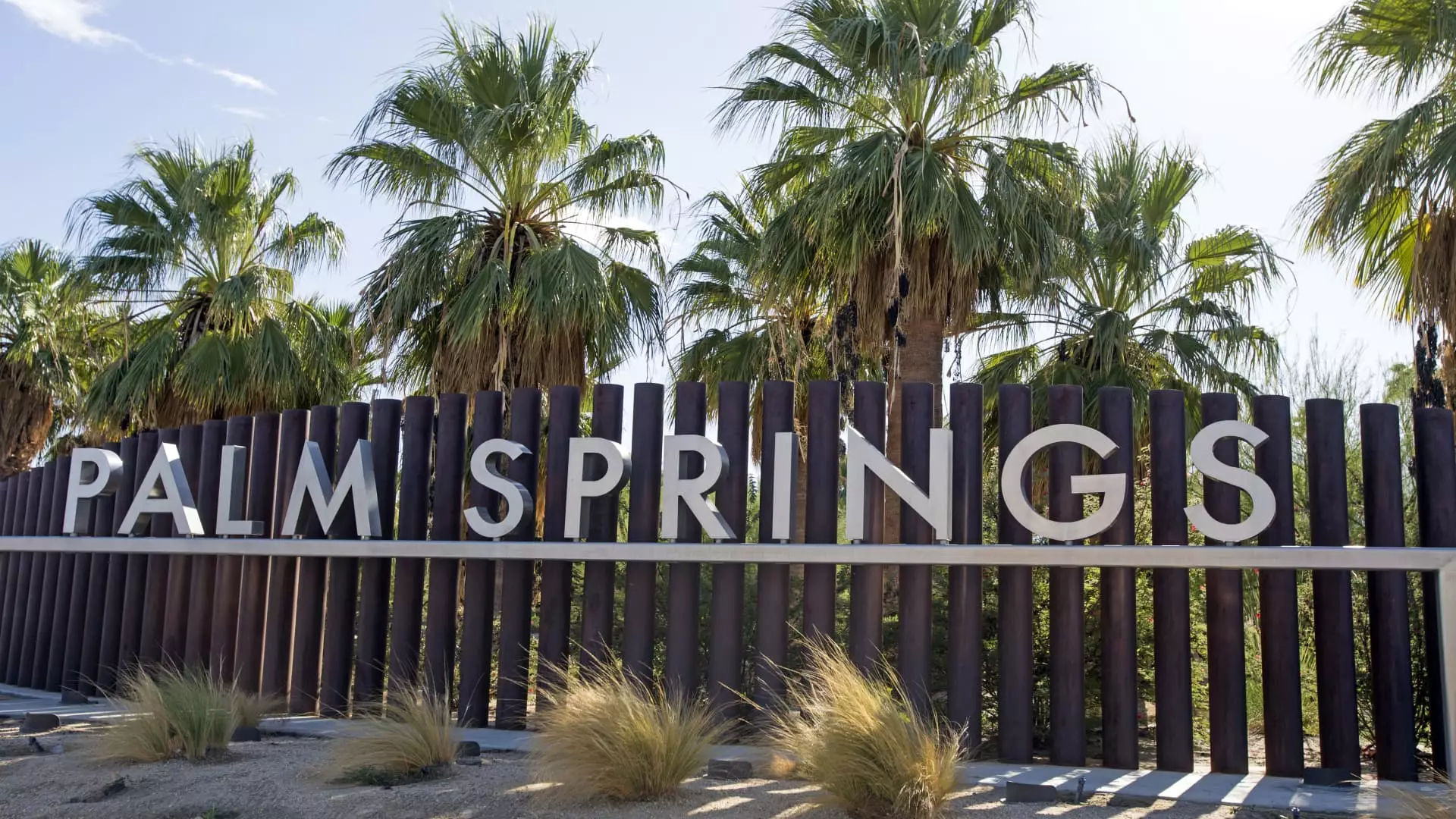In Palm Springs, California, a horrifying act of brutality shattered the fragile peace of a community known for its sunny landscape and leisurely lifestyle. A devastating explosion leaving one person dead and five others injured was not simply an unfortunate accident; it was declared by officials as an “intentional act of violence.” Such indictments illuminate an alarming trend where public spaces and the safety of innocent lives have become increasingly vulnerable to inexplicable acts of terror.
The chaos unfolded at approximately 11 a.m. on North Indian Canyon Drive, a street lined with medical facilities, including the American Reproductive Centers (ARC), a fertility clinic. Eyewitness accounts and social media videos painted a harrowing picture—windows blown out, safety protocols thrown into disarray, and people scrambling for their lives amid the debris. The reality is chilling: violence has seeped beyond the borders of traditional battlegrounds and has invaded clinics designed to nurture and protect life. This stark contrast between intention and consequence suggests a disturbing nihilism that is gripping segments of our society.
Investigative Efforts Reveal Deep-Rooted Issues
In the immediate aftermath, law enforcement quickly assembled a coalition of local and federal agencies, including the FBI and the Bureau of Alcohol, Tobacco, Firearms and Explosives. The call for a thorough investigation reflects not just urgency, but the sobering understanding that incidents of this nature require an extensive, multifaceted response. This troubling scenario underpins the reality in which police and governmental arms must regularly interact with the fallout from the increasing prevalence of politically charged violence.
The explosion’s motive remains murky. Initial reports did not indicate whether the ARC fertility clinic was specifically targeted, yet the juxtaposition between a violent act and a women’s healthcare facility raises eyebrows—could it symbolize an insidious targeting of women’s reproductive rights? Such fears are not unfounded, especially in an era where reproductive health and autonomy provoke polarizing debates ranging from state legislatures to social media platforms. It brings forth the ugly specter of a world where simple medical care can provoke violent responses.
A Culture of Fear: Women and Healthcare at Risk
It is impossible to disassociate such acts of violence from the broader sociopolitical culture that emboldens radical thoughts and elements. U.S. Attorney General Pamela Bondi’s unequivocal statement that “violence against a fertility clinic is unforgivable” should resonate as an urgent call to action for all of us. Yet it also serves as a reflection of how vulnerable women and their healthcare choices have become. The fallout of such violent acts sends ripples that extend far beyond the physical damage; they create a fear-filled narrative that stifles discussions around reproductive rights and medical care.
We need to address the unsettling reality that those most often targeted in these circumstances are women seeking basic medical services associated with motherhood and fertility. This chilling incident emphasizes the urgent necessity for society to reexamine its values and confront the climate of hostility toward women’s rights. Are we, as a nation, willing to continue down this path where violence is a legitimate response to discontent?
Community Resilience: Implications for the Future
The Palm Springs explosion stands not merely as a grim statistic in the ledger of national violence but as a stark reminder of the work that remains. It urges us to confront a creeping malaise that has allowed the specter of violence to become interwoven with political and social discourse. As communities come together to grapple with the aftermath, the resilience of citizens must shine through. They must raise their voices in unison, demanding safety, advocacy for reproductive rights, and a commitment to ensuring that medical facilities remain sanctuaries of care rather than targets of violence.
The path to healing will be arduous, but the alternative—remaining silent in the face of aggression—is untenable. The time has come for a concerted effort to fortify societal values of respect, compassion, and inclusivity, particularly within debates surrounding health and wellbeing. Breaking the cycle of violence necessitates not only vigilance but an engaged citizenship willing to redefine the narrative woven by fear and hostility into one that is anchored in safety and mutual respect.


Leave a Reply